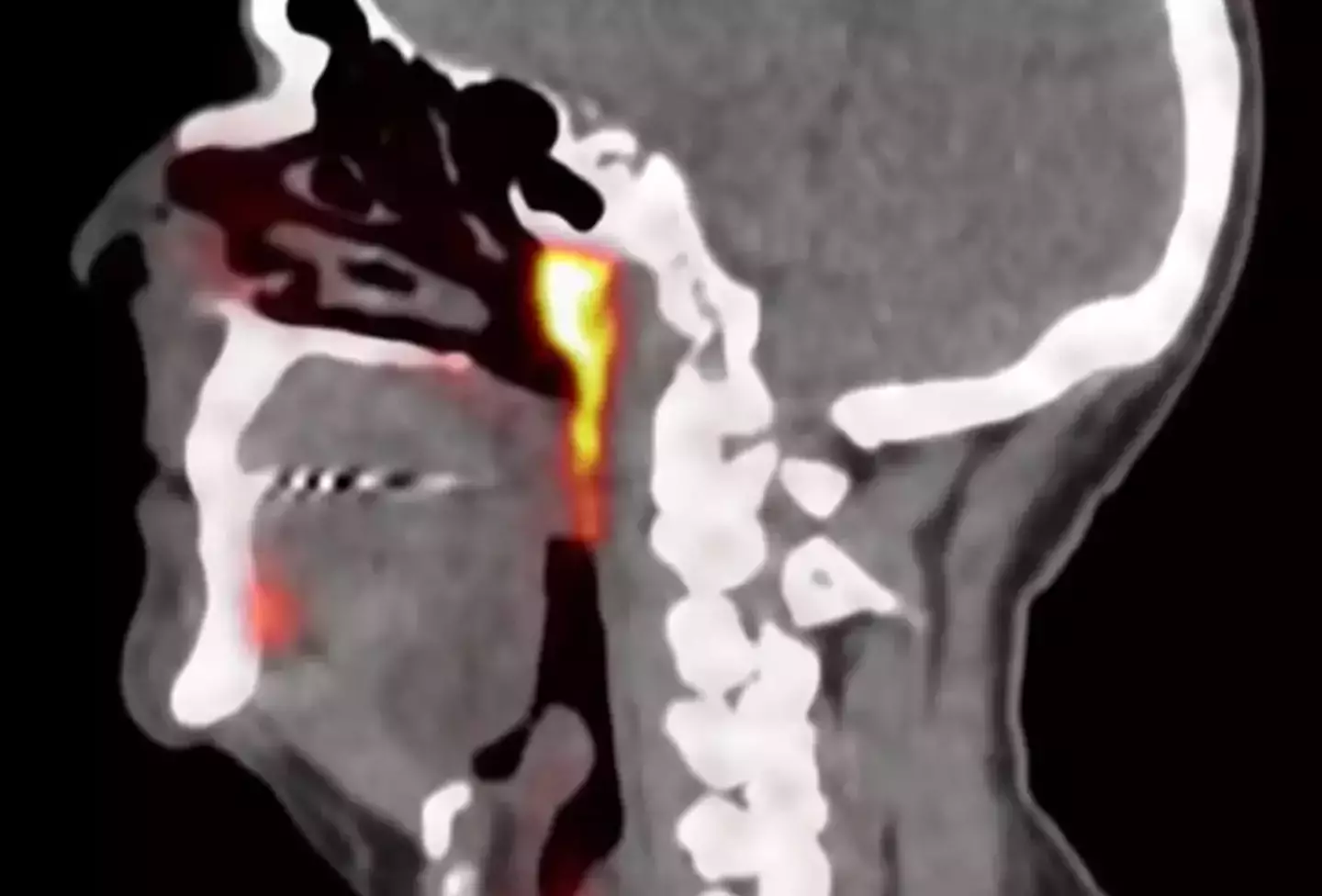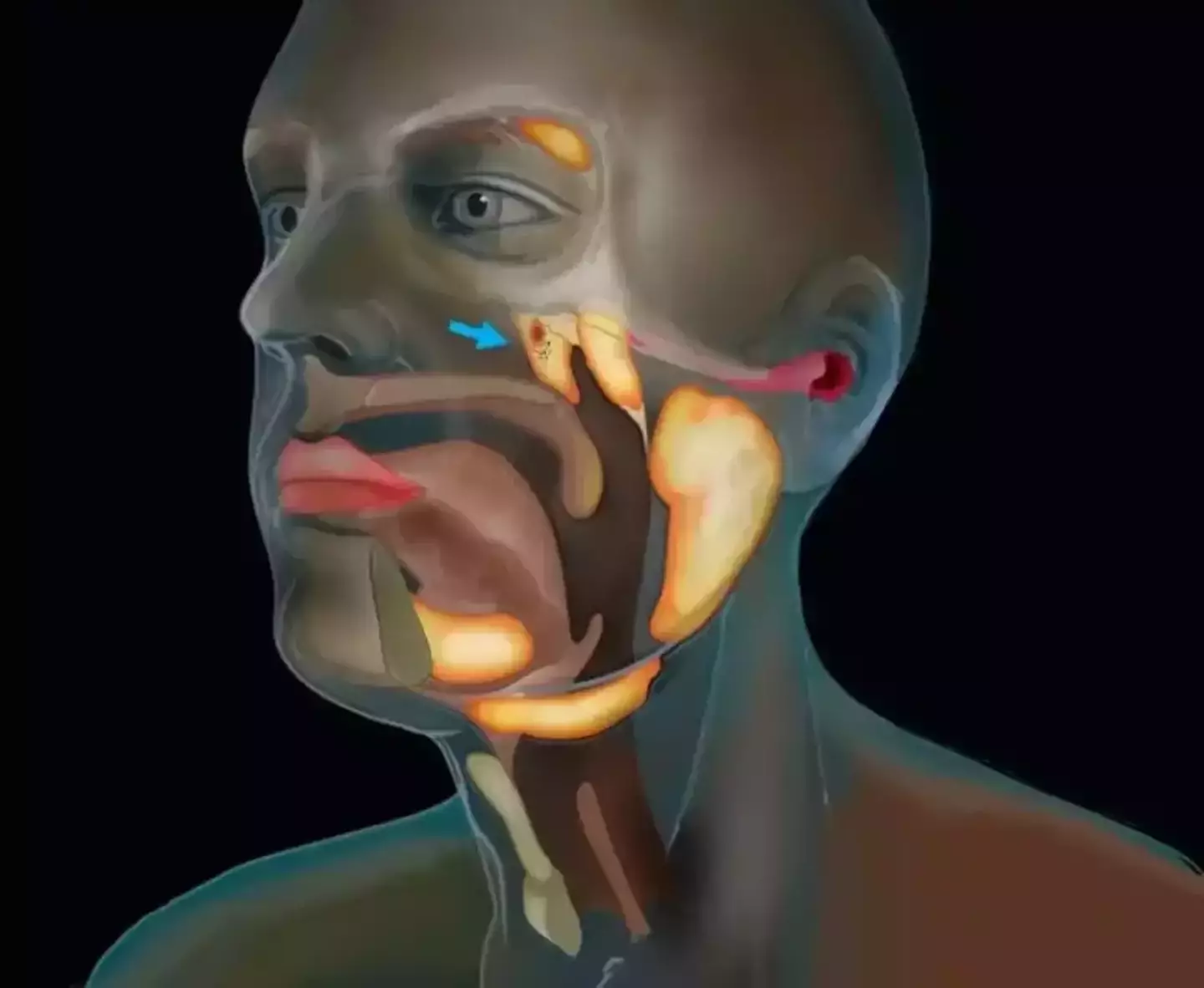Scientists accidentally discovered brand new organ in the human body never seen before

A team of scientists discovered a new organ in the human body while looking for something very different.
Dutch experts were studying prostate cancer when they made a scientific breakthrough at the other end of the body.
It turns out that this newly discovered organ was right under our noses this whole time, or more precisely, right behind it.
The team of scientists worked at the Netherlands Cancer Institute and performed a series of CT and PET scans on patients who had been injected with radioactive glucose.
They weren’t doing this for no reason, because the glucose would make the tumors glow on scans and make them easily detectable.

The new organ was only discovered in 2020, and it was still in front of us. (YouTube/Antoni Van Leeuwenhoek)
It works by binding to the PSMA protein, which is more often found in prostate cancer cells.
Luckily, the PSMA protein is also very good at detecting the salivary glands and lo and behold, when examining the results, the experts noticed that a few spots inside the human head also lit up.
This led them to expect that the salivary glands were contained within, and it is believed that these particular glands are in place to lubricate the upper throat, behind the nose and mouth.
A little deeper research uncovered what the team dubbed the “tubal salivary gland,” located behind your nose, near where your nasal cavity meets your throat.
It’s basically right behind your face and scientists made sure they didn’t get lucky even once by examining 100 patients.
They all had the “tubal salivary gland,” as did two cadavers the team examined, so we were pretty sure that meant we had them all.

This is where your salivary glands are located. (Netherlands Cancer Institute)
In a somewhat scientific case, when radiation therapy is performed on a patient’s head or neck, doctors try to avoid the salivary glands as much as possible, because they can be damaged, causing problems with swallowing, d food or speech.
On the other hand, before the glands were discovered, this part of the body was targeted with radiation therapy, which could have led to unintended side effects, such as a dry feeling in the mouth after treatment.
The human body has three other major salivary glands, all located in the head except one where the tubal glands are located.
The parotid glands are the main ones and provide the saliva that helps you chew and swallow your food.
Below the lower jaw are the submandibular glands, which are responsible for most of the saliva in your mouth. You can feel them slightly above the Adam’s apple and they are about two inches apart.
Last, and perhaps least, there are the sublingual glands that sit under the tongue, they just do what they can to help.
Featured image credit: YouTube/Antoni Van Leeuwenhoek/Netherlands Cancer Institute
Subjects: Health, Science, Technology
News Source : www.ladbible.com
Gn Health





